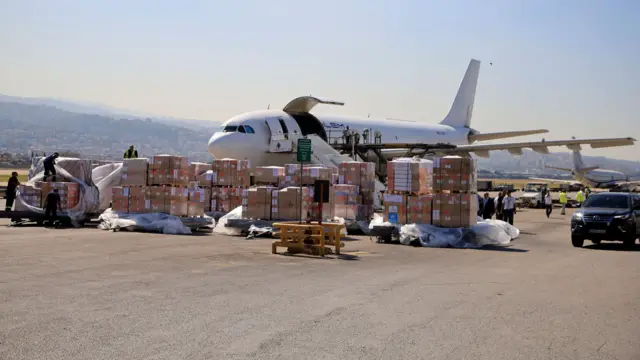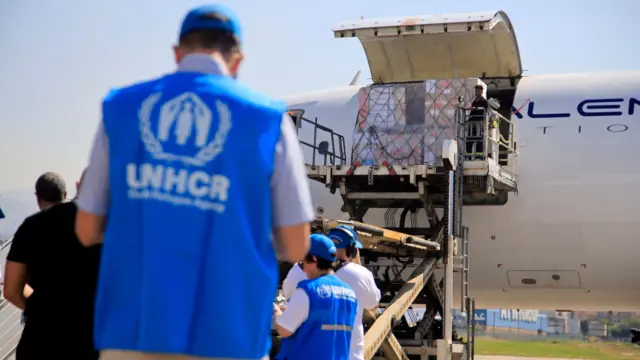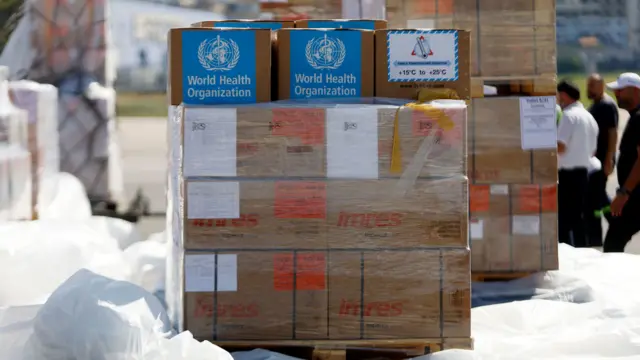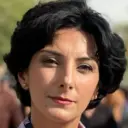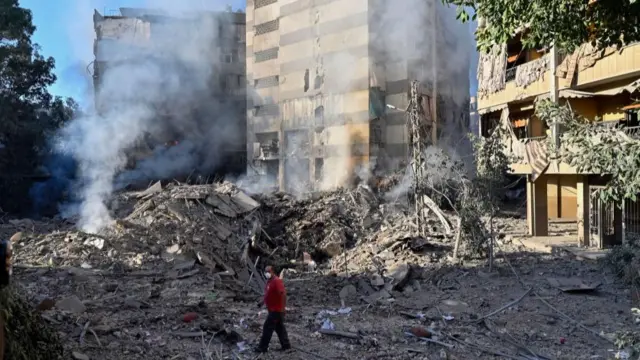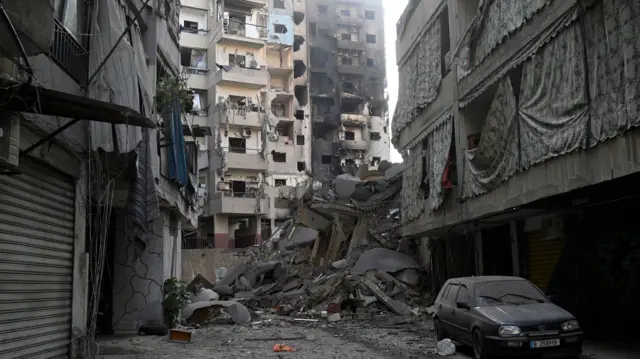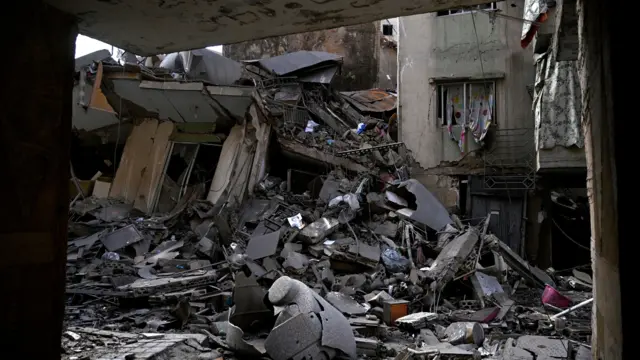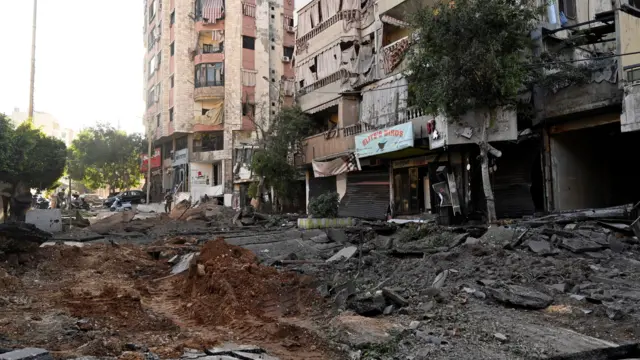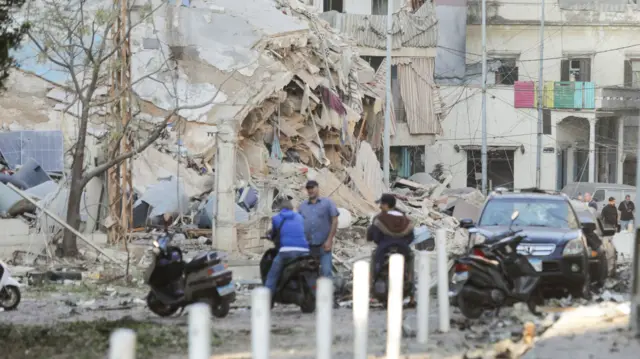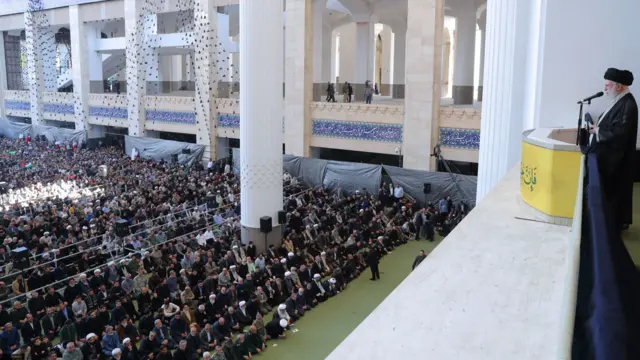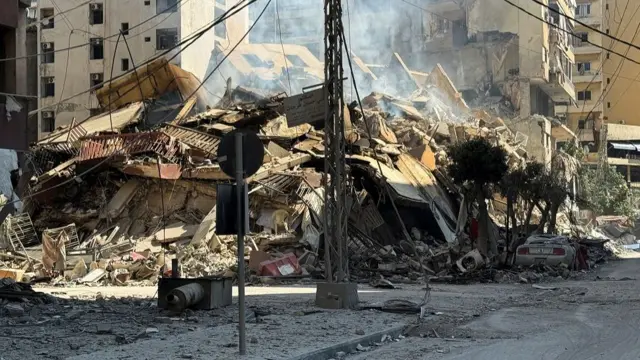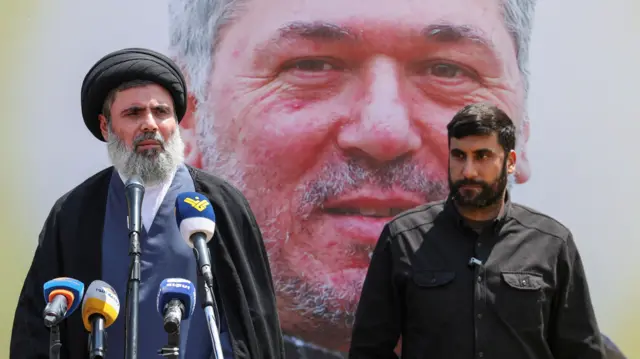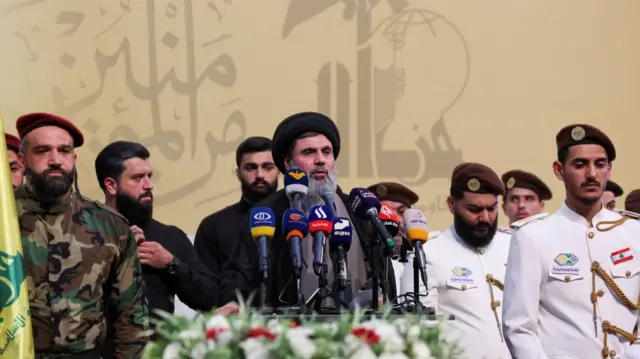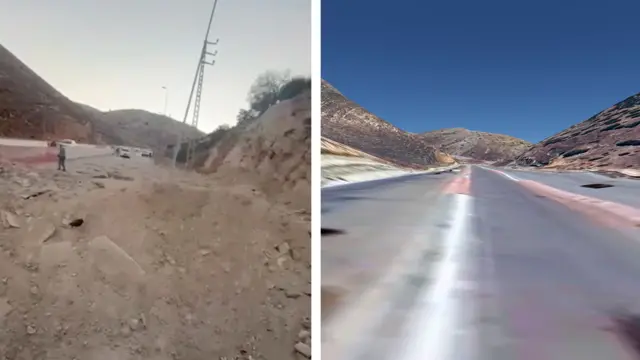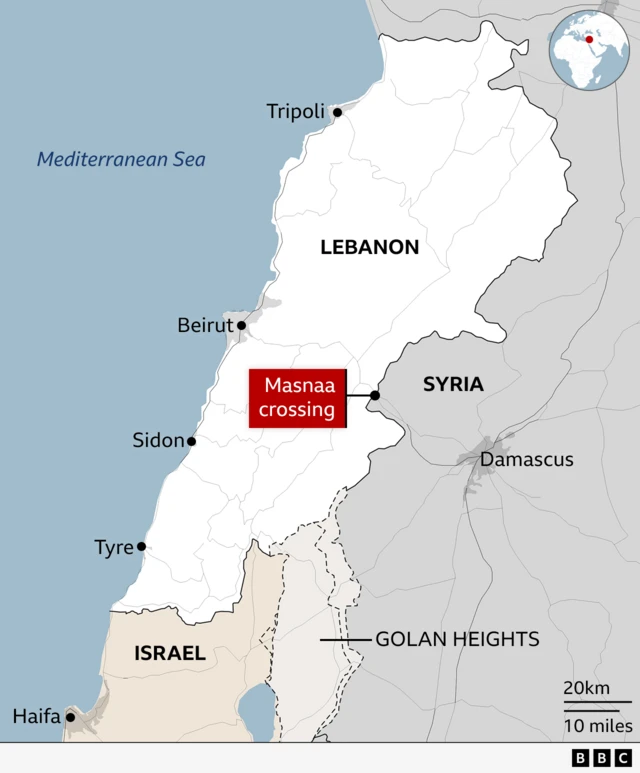Targeting of Masnaa crossing puts pressure on movement of people and goodspublished at 15:29 BST 4 October 2024
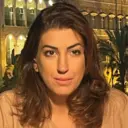 Carine Torbey
Carine Torbey
BBC Arabic correspondent, in Beirut
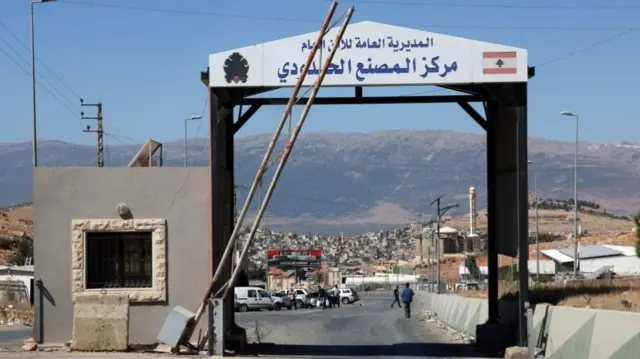 Image source, Reuters
Image source, ReutersThe Masnaa crossing between Lebanon and Syria.
Since the start of the latest escalation, around 300,000 people have crossed into Syria to flee Israeli air strikes. Most of them took the Masnaa crossing.
Cutting off that road will mean further pressure on civilians - Lebanese and Syrians alike.
The Israeli army says it has struck an underground tunnel crossing that enables the smuggling of weapons, but the Lebanese minister of works has said the crossing is civilian and under the state’s authority.
He also warned that Lebanon could face a siege by air and by land, following the targeting of the road and calls on the international community to take action.
The targeting of the crossing will not only affect the movement of people but also of goods.
There are other crossings between Syria and Lebanon, but Masnaa is the most important and prominent one.

